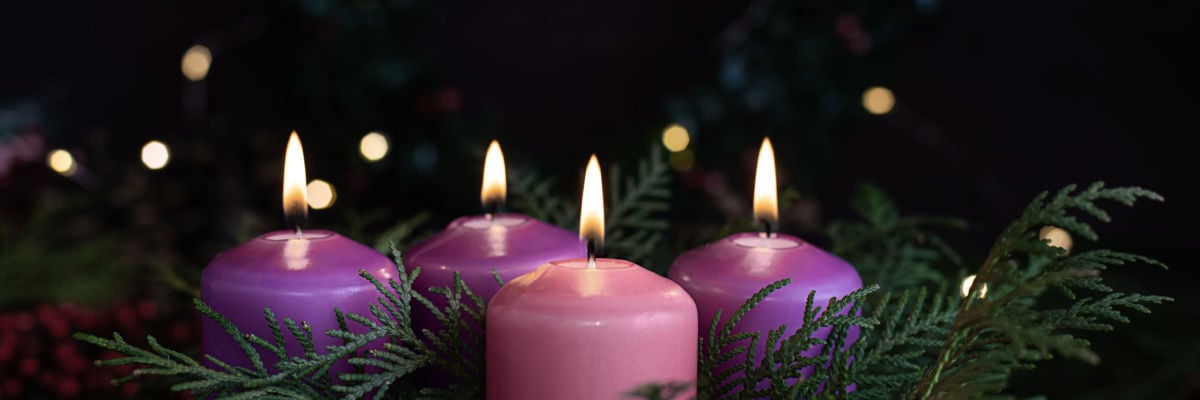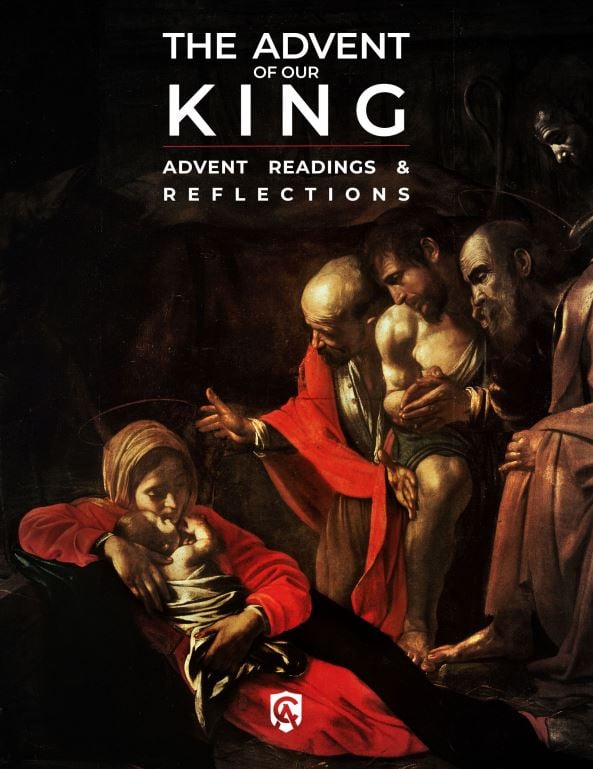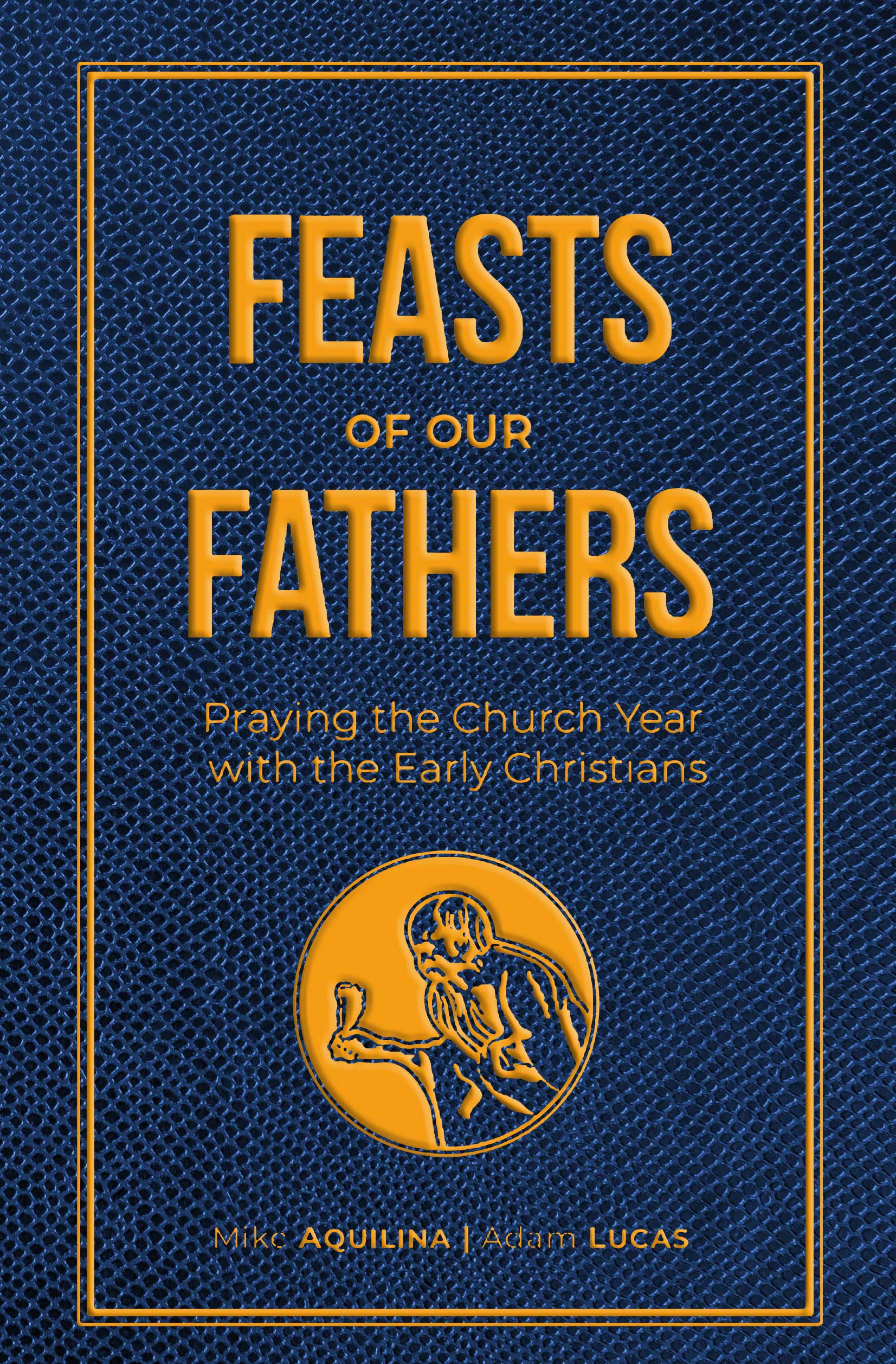
When Is Advent?
A four-week season, Advent, begins on the Sunday closest to November 30th and concludes on Christmas Eve, December 24th. It marks the beginning of the new liturgical year in the Catholic Church.
So for the 2026 Liturgical Year, Advent begins on Sunday, November 30, 2025.
You might be asking, is the first Sunday of advent a holy day of obligation? The answer is no, it is not a holy day of obligation because every Sunday is already a holy day of obligation.
What Is the Meaning of Advent?
- Preparation for the Birth of Christ: Advent is a time to prepare our hearts and minds to celebrate the arrival of Jesus. We reflect on the Messianic prophecies of the Old Testament, their fulfillment in Jesus our hope (1 Tim. 1:1), and thus the mission of salvation he’s given to us as members of the one Church he founded.
- A Call to Conversion: It’s also a season of introspection and renewal. The liturgical color purple reminds us of our imperfections and the need for repentance. By acknowledging our shortcomings, we open ourselves to God’s grace and prepare ourselves to receive the gift of Christ. Also, penance—such as through prayer, fasting, and almsgiving—helps us quiet and discipline our hearts for the joy of Christmas (see Catechism 1434). In that light, without an Advent fast it’s harder to prepare for a Christmas.
In essence, this season is a bridge between the past, present, and future. It allows us to look back on the hope for the Savior of the World, experience anew the joy of his arrival and also his reign in the present through his Church, and to prepare ourselves for his glorious return at his Second Coming.
Advent Daily Reflections and Prayers
Join Catholic Answers former chaplain, Fr. Vincent Serpa, for daily advent reflections. Sign up and each day for 28 days, we’ll send you the daily scripture along with Fr. Serpa’s reflection covering the true story of the Advent season and some of the most important teachings on the the birth of Jesus. Or, download our free Advent readings & reflections eBook: The Advent of Our King.
Free eBook Download | The Advent of Our King
What Do the 4 Candles of the Advent Wreath Mean?
Each Sunday of Advent holds a special significance, as symbolized by the respective four candles of the Advent wreath.
- First Sunday of Advent: This Sunday marks the beginning of the season and traditionally focuses on the theme of hope, symbolized by the purple Prophet’s Candle which points to the long-expected Savior (see Tit. 2:13; John 3:16–17).
- Second Sunday of Advent: The focus shifts to faith with the purple Bethlehem Candle, reminding us of Mary and Joseph’s journey to the city where Jesus would be born (see Mic. 5:2; Luke 2:1–7).
- Third Sunday of Advent (Gaudete Sunday): In a departure from the usual purple vestments, priests wear a rose-colored one at this Sunday’s Mass, and rose (pink) is also the color of the Shepherd’s Candle. Both symbolize the world’s joy for the long-expected Savior’s birth (see Isa. 9:1–3; Luke 2:8–12).
- Fourth Sunday of Advent: The final Sunday before Christmas emphasizes the incomparable peace that our Divine Savior brings (see Isa. 9:6; John 14:27), and which the purple Angel’s Candle heralds (see Luke 2:13–14).
Liturgical Calendar and Advent
The Church’s Liturgical Calendar serves as a guide throughout the year, marking important feasts and seasons. Advent occupies a unique position, bridging the gap between Ordinary Time and the Christmas season. It’s a time of introspection and preparation, enabling us to enter the joyous celebration of Christmas with a renewed heart and mind.
Advent Prayers and Devotions
There are many ways to enrich your Advent experience and deepen your spiritual preparation. Here are a few suggestions:
- Lighting the Advent Wreath: As noted, a new candle is lit on the Advent wreath each week, symbolizing the growing anticipation for the Christ Child’s
- Scripture Readings: Devote time to reading biblical passages related to the Nativity story and the prophecies surrounding the Messiah and his glorious return at the end of time. A great option would be our quick read “20 Answers: The Book of Revelation.” The daily Mass readings, which can be easily accessed online at USCCB.org if you don’t have a Daily Missal, are another option.
- The Christ Candle: Any large white candle can be used for the Christ candle. The idea is to decorate it with symbols of Jesus. You can use old Christmas cards, sequins, holly, etc. The candle can be lit on Christmas Eve to show that the Light of the World has arrived. Then you can continue to light the Christ candle throughout the year at Sunday dinner, reminding you and your family that we await the Second Coming of Jesus, as well as for celebrating now his birth and Resurrection.
- Advent Devotions: There are many Advent devotions you can choose from. We suggest “The Three Comings of Christ: Daily Meditations for Advent.”
- Advent Calendars: These calendars include daily activities or reflections, helping you engage with the themes of Advent each day. For kids, they often include pieces of candy or chocolate to make it more fun! But don’t let the kiddos eat candy every day; otherwise you’ll defeat the penitential prep. for Christmas!
What Is After Advent?
The liturgical season following Advent is Christmastide, which traditionally lasts twelve days, concluding on the Feast of the Epiphany (traditionally dated as January 6). This period extends the celebration of Jesus’ birth and the manifestation of God’s love to the world. More recently, the Church has expanded the Christmas season to be inclusive of the Baptism of our Lord, which this season takes place on Sunday January 12, 2025.
How to Defend Christmas
Related Content
Books





